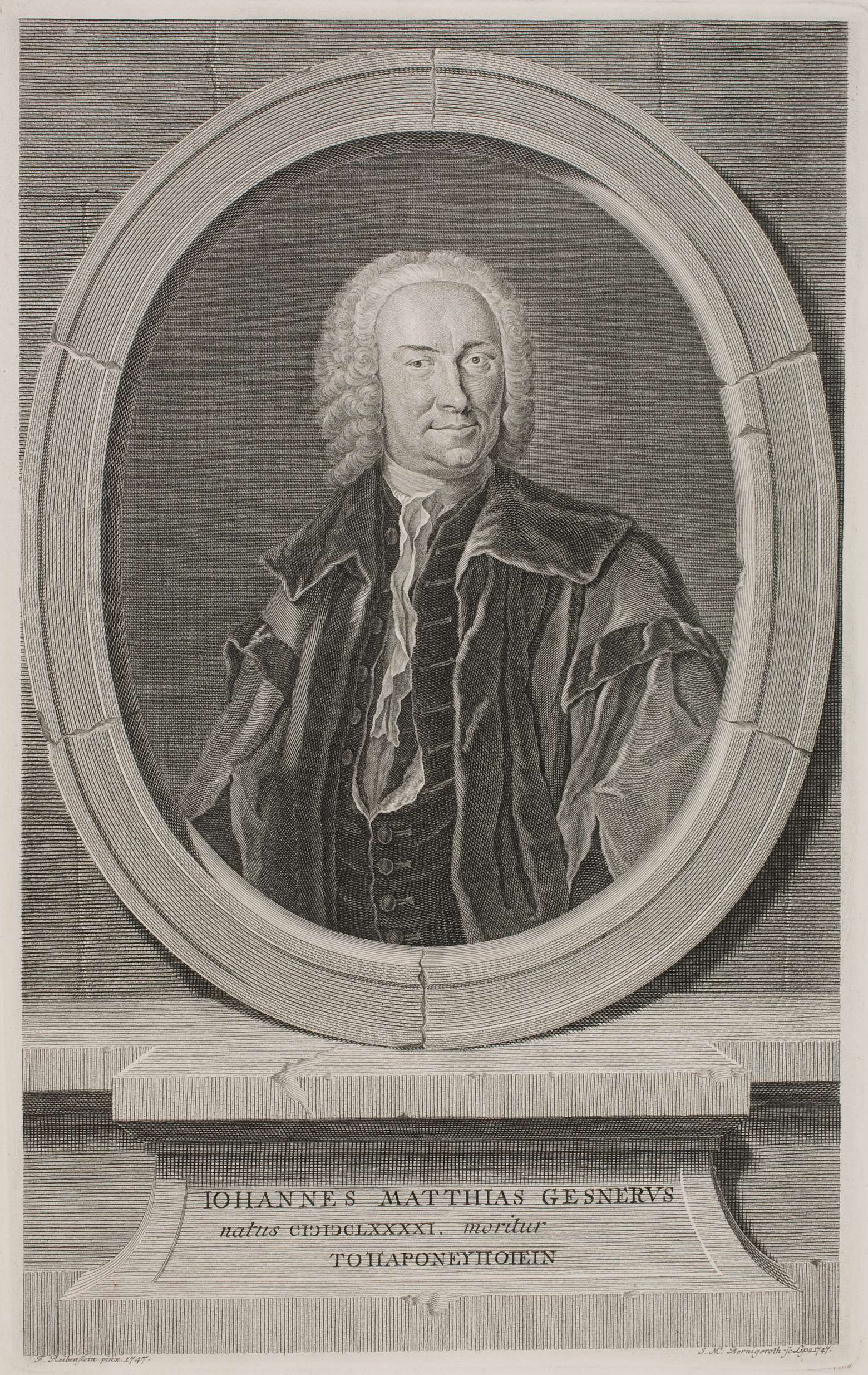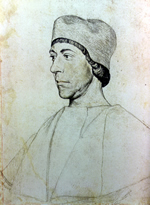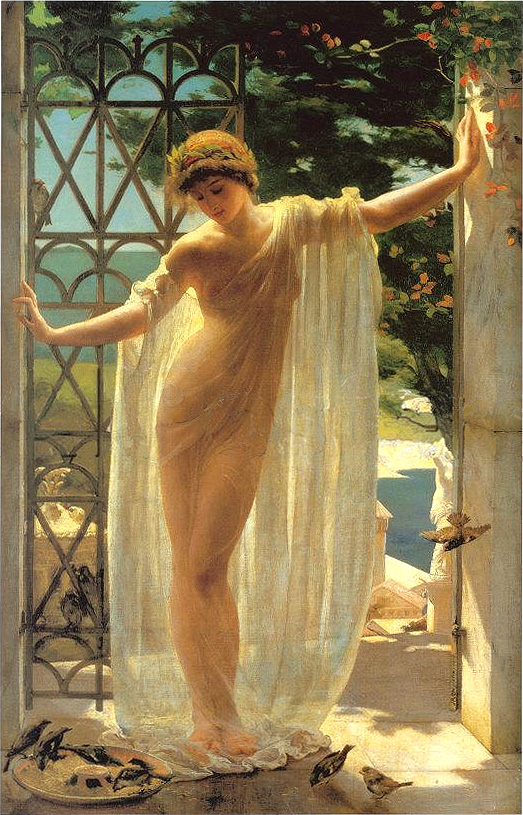|
Johann Matthias Gesner
Johann Matthias Gesner (9 April 1691 – 3 August 1761) was a German classical scholar and schoolmaster. Life He was born at Roth an der Rednitz near Ansbach. His father, Johann Samuel Gesner, a pastor in Auhausen, died in 1704, leaving the family in straitened circumstances. Gesner's mother, Maria Magdalena (born Hußwedel), remarried, and Johann Matthias's stepfather, Johann Zuckermantel, proved supportive. Noticing the boy's gifts, Zuckermantel prepared him for the Ansbach Gymnasium (Germany), Gymnasium. As the costs of the school surpassed the family's means, the boy was supported by public resources and spent his school years in a dwelling for poor students. He was given special attention and instruction by the rector of the Gymnasium, Georg Nikolaus Köhler, who sparked his interest in languages, loaned him Greek texts, and devised special exercises in which the boy had to reconstruct intelligible texts from fragments. Gesner later recalled his Gymnasium years the most ple ... [...More Info...] [...Related Items...] OR: [Wikipedia] [Google] [Baidu] |
Johann Mattias Gesner - Titelkupfer
Johann, typically a male given name, is the German language, German form of ''Iohannes'', which is the Latin language, Latin form of the Greek language, Greek name ''Iōánnēs'' (), itself derived from Hebrew language, Hebrew name ''Johanan (name), Yochanan'' () in turn from its extended form (), meaning "Yahweh is Gracious" or "Yahweh is Merciful". Its English language equivalent is John (given name), John. It is uncommon as a surname. People People with the name Johann include: Mononym *Johann, Count of Cleves (died 1368), nobleman of the Holy Roman Empire *Johann, Count of Leiningen-Dagsburg-Falkenburg (1662–1698), German nobleman *Johann, Prince of Hohenzollern-Sigmaringen (1578–1638), German nobleman A–K * Johann Adam Hiller (1728–1804), German composer * Johann Adam Reincken (1643–1722), Dutch/German organist * Johann Adam Remele (died 1740), German court painter * Johann Adolf I, Duke of Saxe-Weissenfels (1649–1697) * Johann Adolph Hasse (1699-1783), German ... [...More Info...] [...Related Items...] OR: [Wikipedia] [Google] [Baidu] |
University Of Göttingen
The University of Göttingen, officially the Georg August University of Göttingen (, commonly referred to as Georgia Augusta), is a Public university, public research university in the city of Göttingen, Lower Saxony, Germany. Founded in 1734 by George II of Great Britain, George II, King of Great Britain and Electorate of Hanover, Elector of Hanover, it began instruction in 1737 and is recognized as the oldest university in Lower Saxony. Recognized for its historic and traditional significance, the university has affiliations with 47 Nobel Prize winners by its own count. Previously backed by the German Universities Excellence Initiative, the University of Göttingen is a member of the U15 (German Universities), U15 Group of major German research universities, underscoring its strong research profile. It is also a part of prominent international and European academic networks such as Guild of European Research-Intensive Universities, The Guild, the ENLIGHT alliance, and the Hek ... [...More Info...] [...Related Items...] OR: [Wikipedia] [Google] [Baidu] |
Pliny The Younger
Gaius Plinius Caecilius Secundus (born Gaius Caecilius or Gaius Caecilius Cilo; 61 – ), better known in English as Pliny the Younger ( ), was a lawyer, author, and magistrate of Ancient Rome. Pliny's uncle, Pliny the Elder, helped raise and educate him. Pliny the Younger wrote hundreds of letters, of which 247 survived, and which are of some historical value. These include 121 official memoranda addressed to Emperor Trajan (reigned 98-117). Some are addressed to reigning emperors or to notables such as the historian Tacitus. Pliny served as an imperial magistrate under Trajan, and his letters to Trajan provide one of the few surviving records of the relationship between the imperial office and provincial governors. Pliny rose through a series of civil and military offices, the ''cursus honorum''. He was a friend of the historian Tacitus and might have employed the biographer Suetonius on his staff. Pliny also came into contact with other well-known men of the period, includi ... [...More Info...] [...Related Items...] OR: [Wikipedia] [Google] [Baidu] |
Claudian
Claudius Claudianus, known in English as Claudian (Greek: Κλαυδιανός; ), was a Latin poet associated with the court of the Roman emperor Honorius at Mediolanum (Milan), and particularly with the general Stilicho. His work, written almost entirely in hexameters or elegiac couplets, falls into three main categories: poems for Honorius, poems for Stilicho, and mythological epic. Life Claudian was born in Alexandria. He arrived in Rome in 394 and made his mark as a court poet with a eulogy of his two young patrons, Probinus and Olybrius, consuls of 395. He wrote a number of panegyrics on the consulship of his patrons, praise poems for the deeds of the general Stilicho, and invectives directed at Stilicho's rivals in the Eastern court of Arcadius. Little is known about his personal life, but it seems he was a convinced pagan: Augustine refers to him as "foreign to the name of Christ" ('' Civitas Dei'', V, 26), and Paul Orosius describes him as an "obstinate pagan" (' ... [...More Info...] [...Related Items...] OR: [Wikipedia] [Google] [Baidu] |
Quintilian
Marcus Fabius Quintilianus (; 35 – 100 AD) was a Roman educator and rhetorician born in Hispania, widely referred to in medieval schools of rhetoric and in Renaissance writing. In English translation, he is usually referred to as Quintilian (), although the alternate spellings of Quintillian and Quinctilian are occasionally seen, the latter in older texts. Life Quintilian was born c. 35 AD in ''Calagurris'' ( Calahorra, La Rioja) in Hispania. His father, a well-educated man, sent him to Rome to study rhetoric early in the reign of Nero. While there, he cultivated a relationship with Domitius Afer, who died in 59. "It had always been the custom … for young men with ambitions in public life to fix upon some older model of their ambition … and regard him as a mentor". Quintilian evidently adopted Afer as his model and listened to him speak and plead cases in the law courts. Afer has been characterized as a more austere, classical, Ciceronian speaker than those commo ... [...More Info...] [...Related Items...] OR: [Wikipedia] [Google] [Baidu] |
Basilius Faber
Basil Faber (1520–1576), Lutheran schoolmaster and theologian, was born in Sorau (modern Żary), in lower Lusatia, in 1520. In 1538 he entered the University of Wittenberg, studying as ''pauper gratis'' under Philipp Melanchthon. This cites Wagenmann and G. Müller in Herzog-Hauck's '' Realencyklopädie'' (1898). Choosing the schoolmaster's profession, he became successively rector of the schools at Nordhausen, Tennstadt (1555), Magdeburg (1557) and Quedlinburg (1560). From this last post he was removed in December 1570 as a crypto-Calvinist. In 1571 he was appointed to the Rathsgymnasium at Erfurt, not as rector, but as director (''Vorsteher''). In this situation he remained till his death in 1575 or 1576. His translation of the first twenty-five chapters of Luther's commentary on ''Genesis'' was published in 1557; in other ways he promoted the spread of Lutheran views. He was a contributor to the first four of the ''Magdeburg Centuries The ''Magdeburg Centuries'' is an ecc ... [...More Info...] [...Related Items...] OR: [Wikipedia] [Google] [Baidu] |
Christian Humanism
Christian humanism refers to two intellectual movements: the anti-paganizing wing of sixteenth century Renaissance humanism (the scholarly movement and worldview that recovered the classical humanities and ideals of citizenship and human dignity;) and modern Christian humanism proper, which is the assertion within a Christian moral framework of humanitarian principles such as universal human dignity, and individual freedom, and which regards the importance of happiness as essential and principal or even exclusive components of the teachings of Jesus. It is not to be confused with modern humanism, which refers to philosophies that assert the primacy of human values and frame of reference over gods, theology, or religion in general. It should also not be conflated with religious humanism, which refers to a nontheistic movement that practices humanism in congregational structures. Terminology Historian Margaret Mann Phillips wrote that the basis of Christian humanism was "the ... [...More Info...] [...Related Items...] OR: [Wikipedia] [Google] [Baidu] |
Gotthold Ephraim Lessing
Gotthold Ephraim Lessing (; ; 22 January 1729 – 15 February 1781) was a German philosopher, dramatist, publicist and art critic, and a representative of the Enlightenment era. His plays and theoretical writings substantially influenced the development of German literature. He is widely considered by theatre historians to be the first dramaturg in his role at Abel Seyler's Hamburgische Entreprise, Hamburg National Theatre. The word Dramaturgy first appears in his work ''Hamburg Dramaturgy.'' Life Lessing was born in Kamenz, a small town in Electorate of Saxony, Saxony, to pastor and theologian (1693–1770) and his wife Justine Salome Feller (1703–1777), daughter of pastor of Kamenz, Gottfried Feller (1674–1733). His father was a Lutheran minister and wrote on theology. Young Lessing studied at the Latin School in Kamenz from 1737 to 1741. With a father who wanted his son to follow in his footsteps, Lessing next attended the Sächsisches Landesgymnasium Sankt Afra zu Mei� ... [...More Info...] [...Related Items...] OR: [Wikipedia] [Google] [Baidu] |
Cicero
Marcus Tullius Cicero ( ; ; 3 January 106 BC – 7 December 43 BC) was a Roman statesman, lawyer, scholar, philosopher, orator, writer and Academic skeptic, who tried to uphold optimate principles during the political crises that led to the establishment of the Roman Empire. His extensive writings include treatises on rhetoric, philosophy and politics. He is considered one of Rome's greatest orators and prose stylists and the innovator of what became known as "Ciceronian rhetoric". Cicero was educated in Rome and in Greece. He came from a wealthy municipal family of the Roman equestrian order, and served as consul in 63 BC. He greatly influenced both ancient and modern reception of the Latin language. A substantial part of his work has survived, and he was admired by both ancient and modern authors alike. Cicero adapted the arguments of the chief schools of Hellenistic philosophy in Latin and coined a large portion of Latin philosophical vocabulary via ... [...More Info...] [...Related Items...] OR: [Wikipedia] [Google] [Baidu] |
Juvenalis
Decimus Junius Juvenalis (), known in English as Juvenal ( ; 55–128), was a Roman poet. He is the author of the '' Satires'', a collection of satirical poems. The details of Juvenal's life are unclear, but references in his works to people from the late first and early second centuries AD suggest that he began writing no earlier than that time. One recent scholar argues that his first book was published in 100 or 101. A reference to a political figure dates his fifth and final surviving book to sometime after 127. Juvenal wrote at least 16 poems in the verse form dactylic hexameter. These poems cover a range of Roman topics. This follows Lucilius—the originator of the Roman satire genre, and it fits within a poetic tradition that also includes Horace and Persius. The ''Satires'' are a vital source for the study of ancient Rome from a number of perspectives, although their comic mode of expression makes it problematic to accept the content as strictly factual. At first gl ... [...More Info...] [...Related Items...] OR: [Wikipedia] [Google] [Baidu] |
Catullus
Gaius Valerius Catullus (; ), known as Catullus (), was a Latin neoteric poet of the late Roman Republic. His surviving works remain widely read due to their popularity as teaching tools and because of their personal or sexual themes. Life Gāius Valerius Catullus was born to a leading equestrian family of Verona, in Cisalpine Gaul. The social prominence of the Catullus family allowed the father of Gaius Valerius to entertain Julius Caesar when he was the Promagistrate (proconsul) of both Gallic provinces. In a poem, Catullus describes his happy homecoming to the family villa at Sirmio, on Lake Garda, near Verona; he also owned a villa near the resort of Tibur (modern Tivoli). Catullus appears to have spent most of his young adult years in Rome. His friends there included the poets Licinius Calvus and Helvius Cinna, Quintus Hortensius (son of the orator and rival of Cicero), and the biographer Cornelius Nepos, to whom Catullus dedicated a '' libellus'' of poems, the ... [...More Info...] [...Related Items...] OR: [Wikipedia] [Google] [Baidu] |
Virgil
Publius Vergilius Maro (; 15 October 70 BC21 September 19 BC), usually called Virgil or Vergil ( ) in English, was an ancient Rome, ancient Roman poet of the Augustan literature (ancient Rome), Augustan period. He composed three of the most famous poems in Latin literature: the ''Eclogues'' (or ''Bucolics''), the ''Georgics'', and the Epic poetry, epic ''Aeneid''. A number of minor poems, collected in the ''Appendix Vergiliana'', were attributed to him in ancient times, but modern scholars generally regard these works as spurious, with the possible exception of a few short pieces. Already acclaimed in his own lifetime as a classic author, Virgil rapidly replaced Ennius and other earlier authors as a standard school text, and stood as the most popular Latin poet through late antiquity, the Middle Ages, and early modernity, exerting inestimable influence on all subsequent Western literature. Geoffrey Chaucer assigned Virgil a uniquely prominent position among all the celebrities ... [...More Info...] [...Related Items...] OR: [Wikipedia] [Google] [Baidu] |








